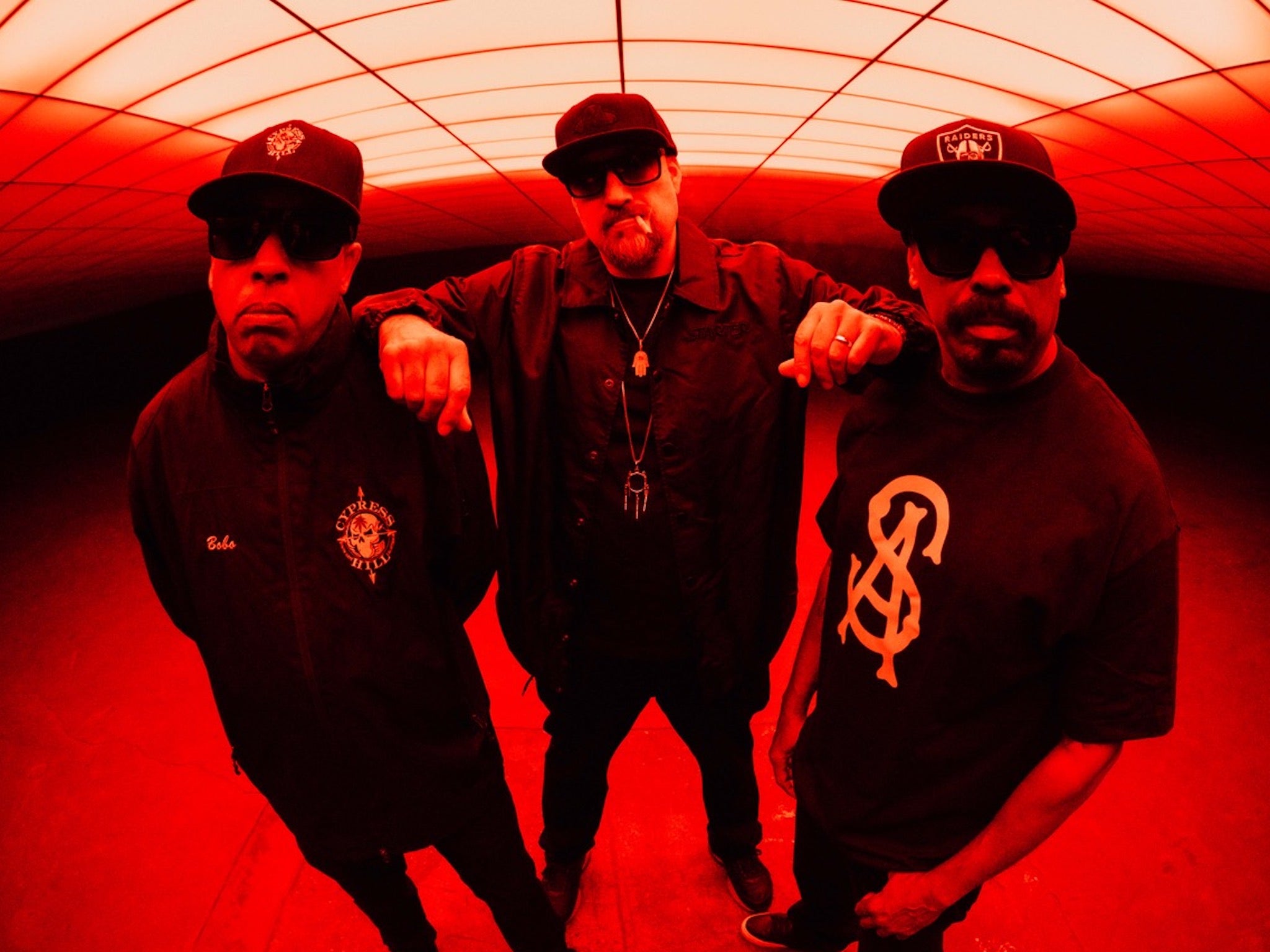Album reviews: Rosalia – Motomami and Cypress Hill – Back in Black
Rosalía’s third record is hypersexual, future-leaning brilliance, while hip-hop legends Cypress Hill remain as clear-headed on hazy-eyed matters as ever

Rosalía – Motomami
★★★★★
By the time Rosalía released her second album, El Mal Querer, in 2018, the English-speaking world was gripped by Latin fever. The UK charts were dominated by reggaeton-inflected tracks from Maluma, Shakira and J Balvin, while she operated as an outlier, serving up experimental, flamenco-flavoured pop. On her third album, the wonderfully bold Motomami, the Spanish artist proves she has lost none of her innovative brilliance.
These songs are hypersexual. Her opening salvo, “Saoko”, thrums with bass, while Rosalía’s delivery arrives in a commanding staccato: “Pasá’ de vueltas, yo me transformo/ Como sex siren, yo me transformo” (“Going overboard, I transform/ Like sex siren, I transform.”) She envisions a Spike Jonze-directed sex tape on “Hentai”, performing in a glass-shattering falsetto over stately piano chords. She lusts after Fendi and gleaming Lamborghinis.
Yet the desire Rosalía sings of is as much to do with her success as it is about sexual want. On “La Fama”, she enlists a Spanish-speaking The Weeknd to remind herself: “Fame’s a lousy lover and won’t ever love me for real.” Woven in among the classical instrumentation, jazz piano riffs and rock guitar lines are electric glitches, stuttery beats and vocal distortions.
Throughout the record, Rosalía honours her Latin music roots at the same time as celebrating the future. “Bulerias” exemplifies this: she begins in traditional cante flamenco style, with impassioned, agitated delivery, urged on by uproarious male chants. A drumming rhythm builds, like gunfire, then come the palmas (hand claps) and, right at the end, her voice begins to distort with autotune, a riposte to those who accused her of cultural appropriation. “I’m as much of a cantaora [a flamenco singer],” she sings in Spanish, “When I’m wearing a Versace tracksuit/ Or dressed like a bailaora [a flamenco dancer].” And just when you’re used to her defiance, her sense of humour, she startles with something as achingly vulnerable as “Como Un G”. This is a spectacular record. ROC
Cypress Hill – Back in Black

★★★★☆
Every stoner, friend of a stoner and parent of a stoner knows Cypress Hill. Upon releasing their self-titled debut in 1991, the Latino hip-hop group has stood the test of time. Songs such as the tellingly titled “Light Another” were dedicated entirely to the benefits and joys to be found in lighting up a spliff. Three decades later, that album continues to soundtrack many a hazy day.
With Back in Black, Cypress Hill continue that legacy. Opening with “Takeover”, it’s immediately clear the band’s West Coast sound remains intact. If anything, their blend of funk and hard-edged, rock-inflected rap has only grown in potency with the power of nostalgia on its side. Those unimpressed by the band’s 2018 foray into psychedelia will be relieved to find this is a straight-up hip-hop joint.
Cypress Hill were musicians with a message from the get-go, and incendiary lyrics about gang culture are where they feel most comfortable. But while other social issue-oriented artists of the Nineties have found new causes to espouse, this four-piece remain true to their original cause: weed. Back in Black may find the world in a different place – where cannabis is partially legal in the US – but, as Cypress Hill demonstrates across the record, the more things change, the more they stay the same. The Cheech and Chong of hip-hop are back – and are as clear-headed on hazy-eyed matters as ever. AN
Join our commenting forum
Join thought-provoking conversations, follow other Independent readers and see their replies
Comments


Bookmark popover
Removed from bookmarks